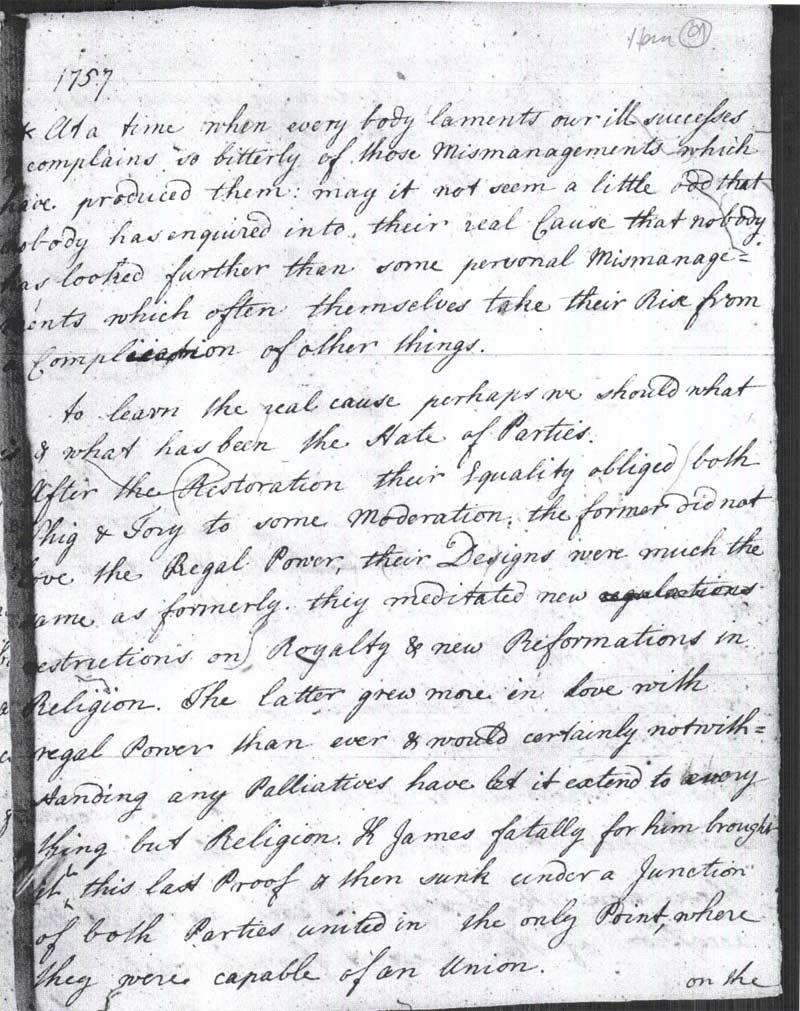Lost Essays of Famed British Politician Found

A newly discovered collection of political essays written some 250 years ago by Irish-born British statesman and philosopher Edmund Burke fills a hole in his biography, a scientist says.
Burke is remembered for his impassioned political speeches and essays, his sympathies for the Americans during the Revolutionary War and his opposition to the French Revolution during a three-decade career as a Whig Party politician in the British Parliament. The newly identified essays date from around 1757, when Burke was 27, a period often described as the "missing years" of his biography, according to Richard Bourke, a researcher at Queen Mary University of London.
"No new essays by Edmund Burke have been found since the 1930s, so these chance survivals are significant, offering a glimpse of the means by which a gifted orator grew into a respected political sage," Bourke said in a statement. Bourke found the three essays among a set of notebooks that belonged to William Burke, a close friend and distant relative of the statesman.
In the newly ascribed manuscripts, Edmund Burke discusses the nature of political parties, the role of citizen armies and the constitutional relationship between Britain and Ireland. These early writings hint at the influences that shaped Burke's political ideas, according to Bourke. Scientists had known that in the 1750s, while pursuing a literary career in London, Burke also dabbled in philosophy and history. These new documents, Bourke points out, reveal Burke deliberately sought a deeper understanding of politics through a philosophical lens, particularly through the lens of enlightenment.
Bourke found two things surprising about the essays. "They address themes that would emerge much later in Burke's career as elements of his thinking about politics, above all his championing of the idea of party, till then seen as a negative force (much like factionalism) in British and American political thought," he wrote in an email to LiveScience.
In addition, the essays "show Burke's signature blend of philosophical reflection and practical engagement early in his development, long before he embarked on a parliamentary career," Bourke added.
The findings are detailed in this month's edition of The Historical Journal.
Get the world’s most fascinating discoveries delivered straight to your inbox.
Follow LiveScience on Twitter @livescience. We're also on Facebook & Google+.



